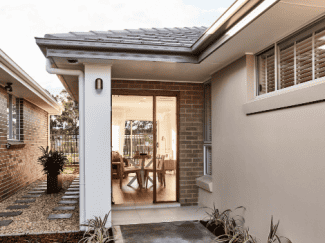Business Opportunity: Rent from Accessory Dwelling Units Counts Toward Income for Mortgage Financing
The Department of Housing and Urban Development (HUD) announced in October 2023 that mortgage lenders may count income from accessory dwelling units (ADUs) when qualifying someone for a mortgage. This is a (rare) potential business opportunity for mom-and-pop landlords looking to purchase properties.

What makes this policy particularly interesting is that it applies to homes that have, or will have, ADUs. This means forecast rental income may be considered even if the unit is not already rented out or has not yet been created. The buyer needs to either show that the ADU exists already, or have plans to build one once financing is secured.
“This change allows for the inclusion of rental income from the ADU in the borrower’s qualifying income and would allow more borrowers to qualify for FHA financing for properties with ADUs, including 203(k) Rehabilitation mortgages,” HUD stated in a press release announcing the change.
The program is backed by the Federal Housing Administration (FHA), and applies to people seeking FHA financing for residential properties.
If a home has an existing ADU, up to 75% of the expected income from renting it out can count toward the buyer’s income when seeking financing. Buyers who plan to build an ADU after purchasing the home may count up to 50% of the expected rental income on loan applications. For new construction projects, the ADU may be included in FHA new-construction loans.
This is the first time we know of in which forecasted rental income can be used to bolster a residential buyer’s income when qualifying for a mortgage. The new policy requires ADU-specific appraisal requirements, so that appraisers can analyze the ADU and the reported rent estimates.
It’s no question we are in the midst of a housing crisis, and one way to help that crisis is to create more housing. Many cities and towns in Massachusetts allow some form of ADUs, and the city of Boston has announced an ADU-specific program that offers 0% loans to build ADUs to qualified participants. It’s clear that this new policy from HUD comes from a place of wanting to address this need.
“The guidance provided in the Mortgagee Letter will assist appraisers to more accurately determine the market value of a property with an ADU and also will help advance the maturation of ADU valuation, thereby increasing access to ADU financing as more cities and states remove zoning barriers,” the press release stated.
The new policy went into effect on Oct. 16, 2023.
Get a Free Multifamily Loan Quote
Access Non-Recourse, 10+ Year Fixed, 30-Year Amortization
Landlords: Know the Local Rules for ADUs Before Investing
This change from HUD is a rare business opportunity for small-time landlords to expand their businesses, but those looking to take advantage of the new ADU income guidelines need to do their homework first. Not all areas of Massachusetts are investor-friendly when it comes to ADUs.
Some cities and towns welcome ADUs of all kinds. Others restrict ADU permissions to owner-occupied homes, or allow ADUs to be rented out to family only. Some places don’t allow any ADUs at all. Research the laws in your targeted municipality before you get too deep into the buying process.
Source: MassLandlords.net















 Accessibility
Accessibility